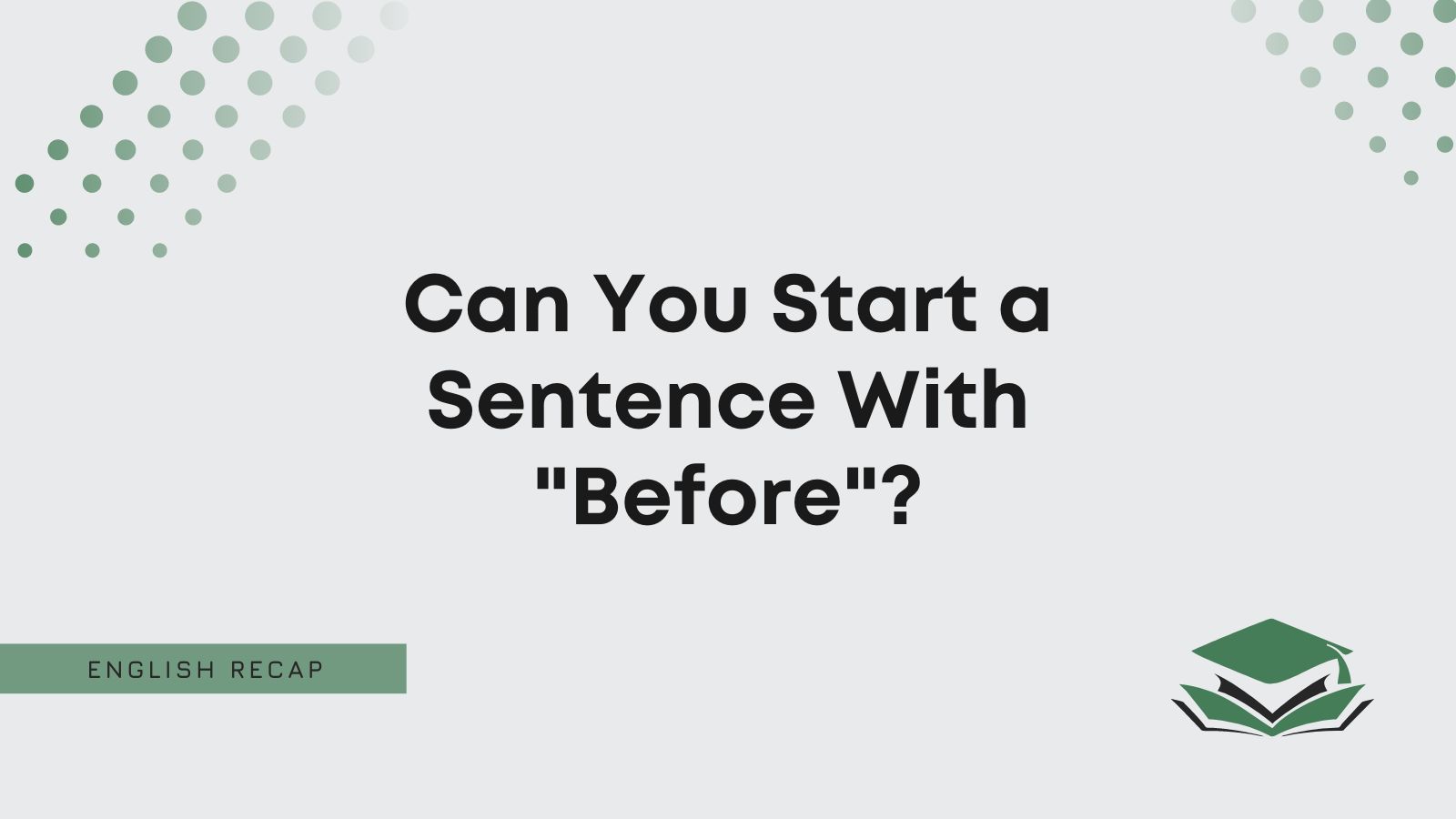It is correct to start a sentence with “before” in formal and informal writing. “Before” can have several functions. At the beginning of a sentence, it can either be an adverb, preposition, or conjunction. The role that “before” performs in the sentence determines whether you need punctuation.
The word “before” can be one of three different word types depending on its role in the sentence.
As a preposition, the word “before” is followed by a noun or pronoun.
- Before her exam, she quickly read over her notes one last time.
As a conjunction, the word “before” means that something took place previously to something else.
In this role, “before” is effectively the linking word between the two clauses. Therefore, it can come at the start of a sentence or in the middle.
- Before setting off for the beach, he checked the air pressure of the tires.
You can also reverse the clause so it becomes:
- He checked the air pressure of the tires before setting off to the beach.
As an adverb, the word “before” needs a comma immediately afterward to show that it influences the whole sentence and not just the words that appear after it.
- Before, he didn’t use to act like this.
If you are still doubtful about using “before” at the start of a sentence, please keep reading the rest of the article. You’ll discover more about how you can use “before” in formal and informal writing.
Can You Start a Sentence With “Before” in Formal Writing?
It is correct to start a sentence or paragraph with the word “before.” There is no issue with the word “before” being too informal, and you can easily use it in academic writing.
- Before conducting the experiment, we checked all the materials for faults.
Something to remember is that you need to punctuate “before” when it is an adverb that affects the whole sentence. In this context, the word “before” means in the “era” or “time” before the present.
- Before, people suffered less from depression and mental illness.
- Before, finding meaningful employment was not as much of a struggle as today.
It is often better to use a more formal synonym for “before” in formal writing. Other words that you could use include:
- Preceding
- Previous to
- Prior to
Can You Start a Sentence With “Before” in Informal Writing?
It is acceptable and common to start sentences with “before” in informal writing. When “before” is at the beginning of a sentence, it either functions as a preposition, conjunction, or adverb.
When using “before” as a preposition or conjunction, you should never put a comma directly after the word.
Furthermore, when “before” is used as a preposition, it relates to space as well as time. It can mean literally “in front,” or it can mean “ahead” or “coming up.”
- Before him stood his arch-nemesis. (preposition)
- Before her was the very person that she didn’t want to see. (preposition)
When using “before” as a conjunction, you can change the word order.
- Before going to school, Tim eats breakfast with his parents. (conjunction)
- Tim eats breakfast with his parents before going to school.(conjunction)
However, when using “before” as an adverb to start a sentence, you need a comma directly afterward.
- Before, children used to respect their elders. (adverb)

